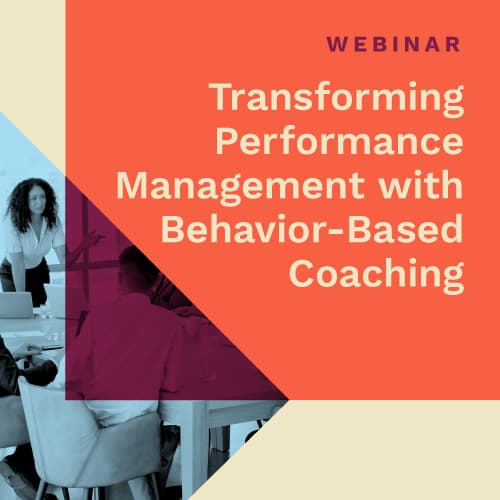Empower Stress, Empower You
Psychologist and thought leader Kelly McGonigal delivered an impactful talk at TedGlobal 2013 (with over 17 million online views) completely challenging each one of us to change our perception of stress. And she backed this game-changing view by scientific studies that show sheer stress in and of itself is not harmful to humans—but our belief that stress is harmful allows it to demoralize the human spirit. Our negative perception of the physical signs of stress fuels its ability to harm our health—mentally, emotionally and physically.
In her talk, McGonigal asked listeners to consider what happens if we change how we think about stress. What if you stopped perceiving natural stress reactions as harmful to your health and well-being? What if you saw your stress reactions as helpful? When stress causes your heart to pound, what if “that pounding heart was preparing you for action?” When stress causes rapid breathing, what if you thought “it’s getting more oxygen to your brain?”
McGonigal cited a Harvard University study showing that “participants who learned to view the stress response as helpful for their performance were less stressed out, less anxious, more confident...their physical stress response changed.” These people took control of their emotions and thought processes in a way that manifested beneficial physical responses—simply put, they turned those physical responses associated with health risks such as increased heart rate and blood vessel constriction into a much healthier output. Their hearts were still pounding, but their blood vessels were relaxed.
Does it sound too good to be true? Do you wonder how this is even possible? This all ties to oxytocin—the hormone our bodies release when we’re cuddling, the same one that makes us feel great when we give and receive hugs. It “acts as a neurotransmitter in the brain” and plays a key role in the human experience from social interaction to maternal-infant bonding, empathy, forming close relationships and much more. (Read about it here)
McGonigal explains that this love hormone is a stress reaction. It protects our hearts from the effects of stress. It suppresses inflammation in our bodies. It’s why our blood vessels can stay relaxed during stress. It “helps heart cells regenerate and heal from any stress-induced damage,” she says, “and the cool thing is that all these physical benefits of oxytocin are enhanced by social contact and social support.”
I think this theme of social contact and support is exactly why I was given the task to watch McGonigal’s Ted Talk the last time I met with my CEO Sharon Birkman. I’ve gotten to know Sharon as a powerhouse of compassion and enabler of kindness and generosity—a stalwart of the human spirit. It’s evident in the contagious vibe around our office—my coworkers, our customers, and our partners all exhibit productive social support that comes together to solve problems and empower each other.
From my perspective, it’s a marketer’s dream. How does a customer experience feel better than that? This reality is made possible because of what we do. Our founder Dr. Roger Birkman was a WW2 hero who dedicated his post-war life to the field of organizational psychology and founded The Birkman Method—our groundbreaking assessment that provides so much empowerment around the world, it’s dizzying but gratifying to understand.
Birkman has caused impactful waves in industries such as space exploration and brands including the biggest names in tech. And one of the critical ways Birkman has done that is by measuring some hidden secrets within each of us—human perception data that is unique to each individual. Our insights are backed by 65+ years of validation, millions of data points, ongoing scientific reliability and validity analysis, and countless success stories.
But you thought personality tests are just for fun and not reliable? You read 20 news articles saying so in the last month? Maybe so, in most cases... but Birkman is different because it allows people to self-report on the hidden things they don’t even clearly understand about themselves—their social expectations (Birkman “Needs”) that paint a picture of what they expect the world to look like. And these psychometric measurements are scientifically reliable and valid.
If you’ve made it this far down the page, here’s my recommendation to you:
- 1. Watch the Ted Talk
- 2. Reinforce the concepts with a quick read on Harvard Business Review
- 3. Make a conscious decision to think differently about stress signs in your life, and start the journey to live better by turning stress into a productive tool
- Spend 30 minutes and take the Birkman—The knowledge you’ll gain about your social needs and causes of stress will help you develop self-awareness that increases your social intelligence—you'll fill your life with oxytocin
Working at Birkman, I consider myself fortunate to be in such a constructive environment underpinned by this exemplary self and others awareness tool. My marketing team just participated in a test-run of a pilot workshop designed for a large pharmaceutical brand to increase team collaboration and social intelligence. Our group includes a new manager in me, as well as a new hire currently onboarding, and we're doing remarkably well working together through a lot of change. I'm proud to say that.
But, we still came out with actionable insights to better-understand our stress—both as individuals and as a team. And we're energized and have an action plan to build resilience, disarm stress and change our understanding of it into a positive outcome. As a people manager highly invested in my own team, I'm truly excited about this!

